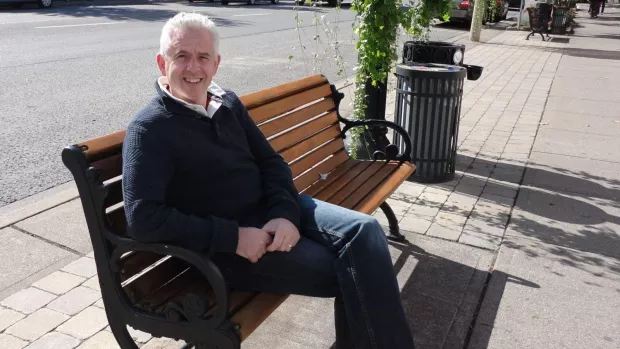
MS and the train
I’ve learned a lot about MS in the seven years since I was diagnosed. If you want to hear about oligodendrocytes, leaky pools or EDSS (Expanded Disability Status Scale) scores I could bore you for hours. But how I look at MS is like a train ride.
The train
Usually, a train leaves station A to go to station Z and it gets there through stations B to Y according to a regular timetable. Most people, when they’re first diagnosed with MS, have the relapsing remitting kind (that’s about 90% of people). Their train leaves station A and gets to station Z but there’s no control over the route. It can go to B, then N, then C before getting to Z. There's no reliable timetable and symptoms get on and off the train whenever they like.
It’s a small train and the crammed in symptoms get angry and cause all kinds of problems. But the train will take you where it wants, when it wants. You can’t choose the stations you stop at. The conductor will throw at least most of these symptoms off at a stop when they get a chance. But not all get off and the conductor gets tired of them causing mayhem all the time.
This is when relapsing remitting MS can progress into secondary progressive MS (SPMS). Like relapsing remitting MS, secondary progressive MS has symptoms getting on and getting loud and angry. But, as The Eagles sang “you can check out any time you like but you can never leave”. The doors open at each station and more get on but the conductor’s not around to kick them off again. Once on, they’re there for the whole journey.
Find out more about the different types of MS
What can be done?
Disease modifying therapies (DMTs) can slow the train down. They don’t cure MS but can reduce the number of relapses and can slow down progression. It’s like sprinkling leaves on the track so it takes longer between stations and less symptoms get on. For people with relapses, the conductor usually has more time to recover between stops.
For me, DMTs mean a twice-yearly trip to hospital for ocrelizumab (Ocrevus) infusions. These lower my B cell count leaving me immunosuppressed and I can get bugs easier. So I have to live with MS symptoms, and the side effects of the DMT I'm given.
Find out more about treatments and therapies
Me and my travelling companions
I’m in the 10-15% of people who get diagnosed with primary progressive MS. Which is like the secondary progressive MS train, except you never got a conductor. Some of the symptoms on my train mean I now have one eye going to the shop and the other coming back with the change. Others mean I use a wheelchair.
It’s not only me who has to live with my MS train. My ticket comes with a family and friends pass. They have no choice but to put up with me and my journey. MS will make the quality of life poorer for me and everyone who cares for me.
If you know the Glasgow to Edinburgh train route, my train’s now at Linlithgow, next stop Edinburgh Park. But it might go by way of Inverness. We’ll get to Waverley, I just don’t know when.




